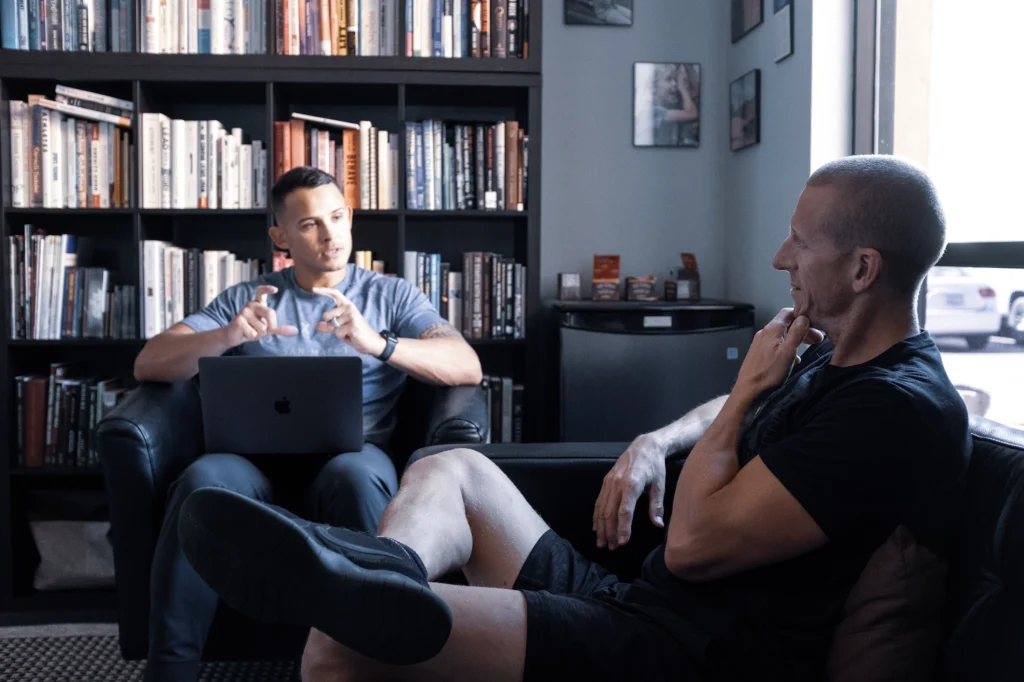
Being a professional coach requires more than an understanding of fitness knowledge, yet hopeful career coaches often overlook these key areas
If you consider yourself a professional fitness coach, it’s important to understand the definition of a professional. According to the dictionary, a professional is someone engaged in a specified activity as their main paid occupation rather than as a pastime.
At OPEX, we believe that a professional fitness coach is not only someone who makes a full-time wage from coaching, but also someone who is educated and experienced in delivering consistent success and results to their clients. A professional coach adds unique value to each of their clients and moves the profession forward by teaching their clients and other coaches how to be autonomous in and out of the gym.
The problem we face as fitness coaches is that coaching is not seen as a professional occupation. In this article, I want to offer up some thoughts on what I believe a professional coach should consider outside of coaching knowledge only.
To become a professional fitness coach, it’s important to understand where you are and where you want to be in your career. There are different levels of coaching, including not coaching, part-time coaching, full-time coaching, owner, coach of coaches and scale. By understanding where you are and where you want to be, you can create a clear path to achieving your goals.
Creating a PVMVP framework can help you achieve your goals as a professional fitness coach. PVMVP stands for Purpose, Vision, Mission, Values and Principles.
Understanding your purpose for coaching, your big, audacious goal for the future, where you want to be in 3-5 years, what you believe in and how you will carry out those beliefs can help guide your decision-making and keep you focused on your goals.
It’s important to understand your version of success as a professional fitness coach. What does success mean to you? What are your goals and aspirations for your career? Understanding your version of success can help you make decisions that align with your values and goals. This is the only way to honestly assess if you are moving closer to success—identifying it first.

Meeting your needs first is another important aspect of being a professional fitness coach. Based on Maslow’s Hierarchy, there are five levels of needs: survival, safety, belonging, esteem and fulfillment. Understanding your basic needs and ensuring that they are met can help you perform at your best and provide the best coaching experience for your clients.
Being a creature of habit can also help you succeed as a professional fitness coach. Habits are unconscious behaviors that can help you develop a routine and stick to it. By developing positive habits, you can improve your productivity and achieve your goals more efficiently.
Understanding your strengths, weaknesses and priorities is also important as a professional fitness coach. By identifying your strengths, you can focus on them and use them to your advantage. Identifying your weaknesses can help you improve and grow as a coach. Knowing your priorities can help you make decisions that align with your goals.
Understanding your value as a professional fitness coach is also important. What unique skills and knowledge do you bring to the table? What sets you apart from other coaches? Understanding your value can help you market yourself and attract more clients.
Knowing your numbers is crucial for professional fitness coaches. This will be different based on service offering, but we encourage our OPEX coaches to always know the number of clients they have, their retention rate, RACs (request a consultation), expenses, revenue, average price per client and profit. By tracking your numbers, you can make data-driven decisions and ensure that you’re on track to achieving your goals.
Understanding your funnel is another important aspect of being a professional fitness coach. A funnel is a marketing term that refers to the process of attracting and converting potential clients into paying clients. By understanding your funnel, you can optimize it and attract more clients to your business.
A professional coach is someone who is educated, experienced and committed to delivering consistent success and results to their clients while also moving the profession forward. Understanding where you are and where you want to be, defining your PVMVP (Purpose, Vision, Mission, Values, Principles) and understanding your version of success are essential steps in becoming a professional fitness coach.
See Carl’s previous column here.
Next week’s column: Simplifying Energy Systems Training
Carl Hardwick, CEO of OPEX Fitness & CoachRx, is a strong advocate for bringing honor to the coaching profession and raising the value of all fitness coaches. He lectures frequently about program design, business systems, and building a sustainable coaching career. Follow him on Instagram @hardwickcarl and OPEX Fitness on YouTube
